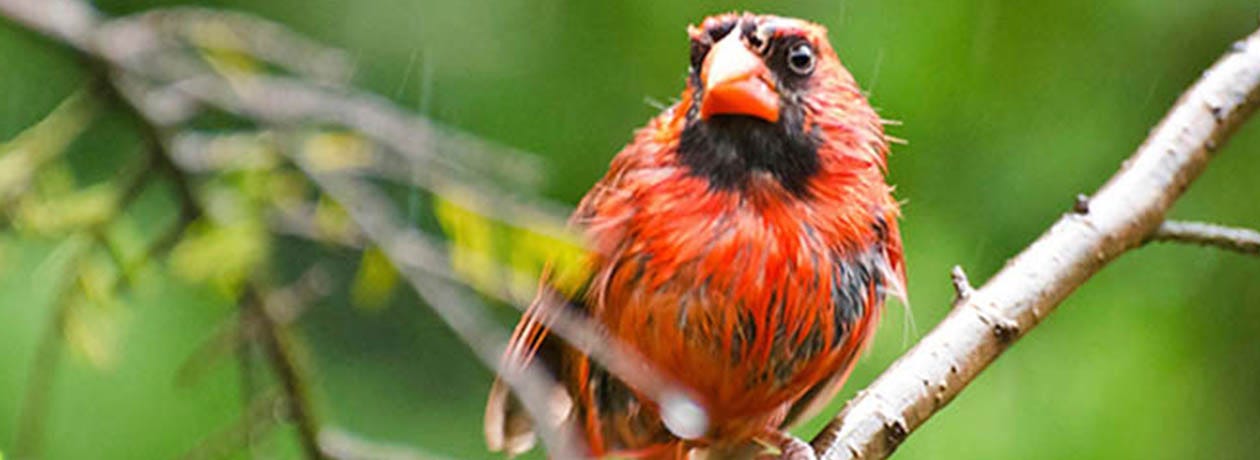Avoid Wet Bird Seed - 3 Ways to Keep Bird Seed Dry

One ongoing problem your customers may face is wet bird seed after rain, sleet or snow. Whether it’s a sudden thaw in the winter, a late-season tropical storm, typical spring rain or a summer downpour, it’s important to keep bird seed dry.
Doing so helps your customers keep their backyard friends healthy and happy.
Clean Bird Feeders Frequently
Since bird seeds are, well, seeds, remember that with enough moisture they can begin to sprout. If there’s too much moisture, bird seed also can spoil if not properly attended to.
Your customers should not allow birds to feast on moldy seeds, it will only be a matter of time until those birds are overcome with an avian disease, fungus or bacterial infection. Recommend that they clean their seed feeders at a minimum of once every two weeks; increasing scheduled cleanings as the weather gets warmer.
To clean seed feeders, your customers should use a mild soap and water solution and a hand-held cleaning brush to clean all of the crevices. Rinse thoroughly and dry completely before refilling the feeder with seed.
Bonus Tip: For bird feeders that need a little more TLC, advise the use of one part vinegar to four parts water. Rinse thoroughly and dry before re-filling.
Monitor Seed Waste on the Ground and Accessorize
The seeds that fall from a bird feeder can create an absolute mess and endanger the birds eating these seeds.
In fact, discarded seeds can lead to big trouble with visiting birds. First, the seeds can attract unwanted pests and predators that can sicken or injure the birds.
Further, when the “grounded” bird seed gets wet, it can create even more trouble for the animals that consume it. Your consumer’s best bet is to remove discarded seed on a regular basis, and quickly remove wet, grounded bird seed after a rain or snow melt.
Keeping bird seed dry while it’s still in the bird feeder is another matter. If you can’t pick a feeder with a wide lid, add a squirrel baffle to the top of your seed bird feeder. This will keep the moisture of rain, or snow, out of the seed supply. As an added benefit, most baffles are also designed to combat seed-stealing squirrels. They’ll just tumble off of the feeder.
Yet another option to limit the wet bird seed in your feeder is to purchase feeders that are built to drain moisture. These feeders will have drain holes in their seed trays or hold the seed in a mesh that allows them to quickly air-dry.
Store Excess Seed Smartly and Safely
In order to keep up with the traffic to seed feeders, your customers may find it necessary to buy bird seed in bulk. Advise them to store excess seed in air-tight containers that can be placed in a cool, dry location, such as a basement, garage or shed. When deciding on the perfect storage location for bird seed, make sure that the container is out of the reach of household pets and cannot be spilled or tipped over.
If your customers are storing bird seed outside, they will need to keep the seed protected from squirrels and other pests. Avoid using a plastic storage container. Instead, purchase a galvanized can for seed storage. Not only will stay completely dry, but there’s no chance that a squirrel or mouse can chew through it!
